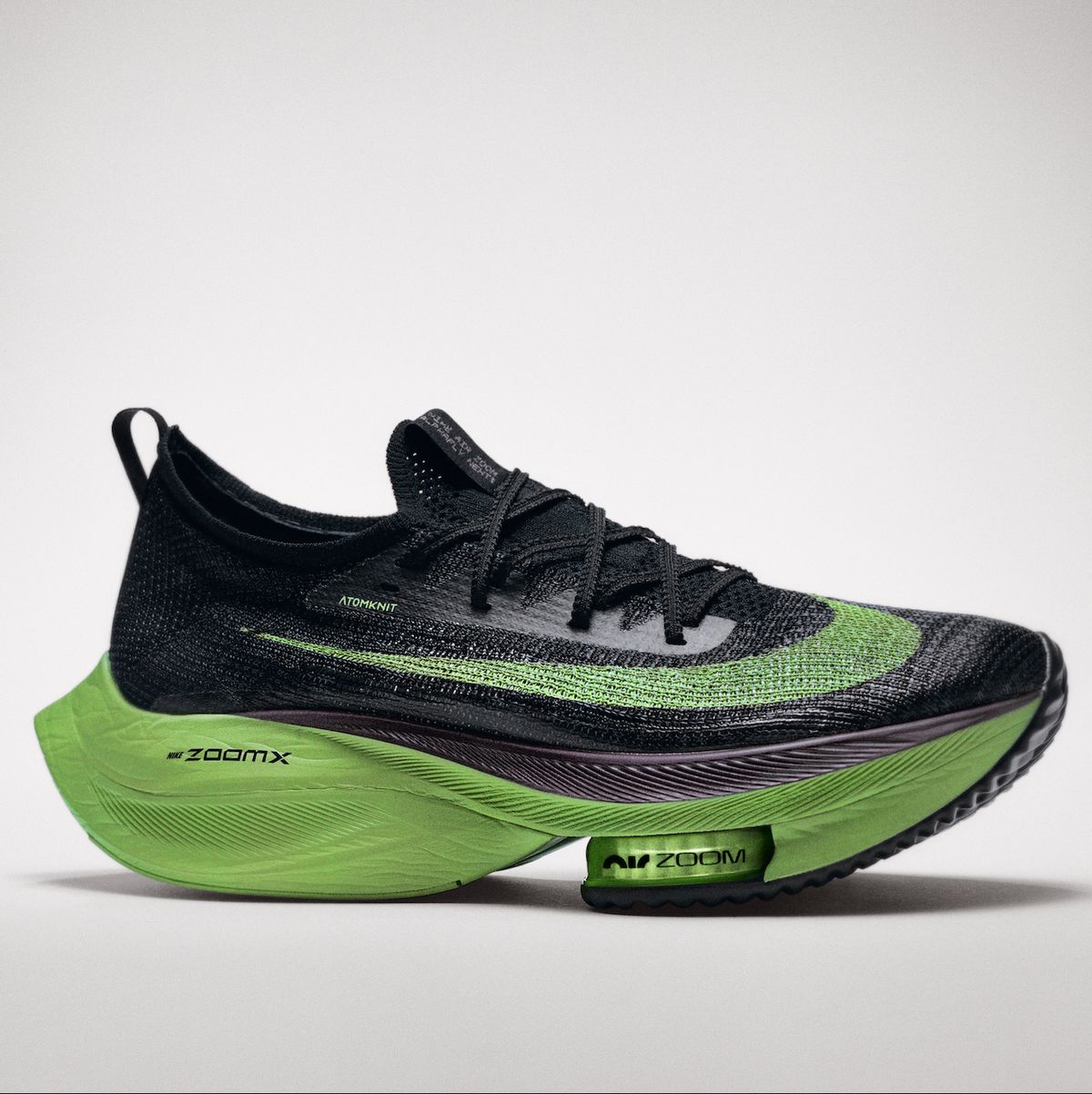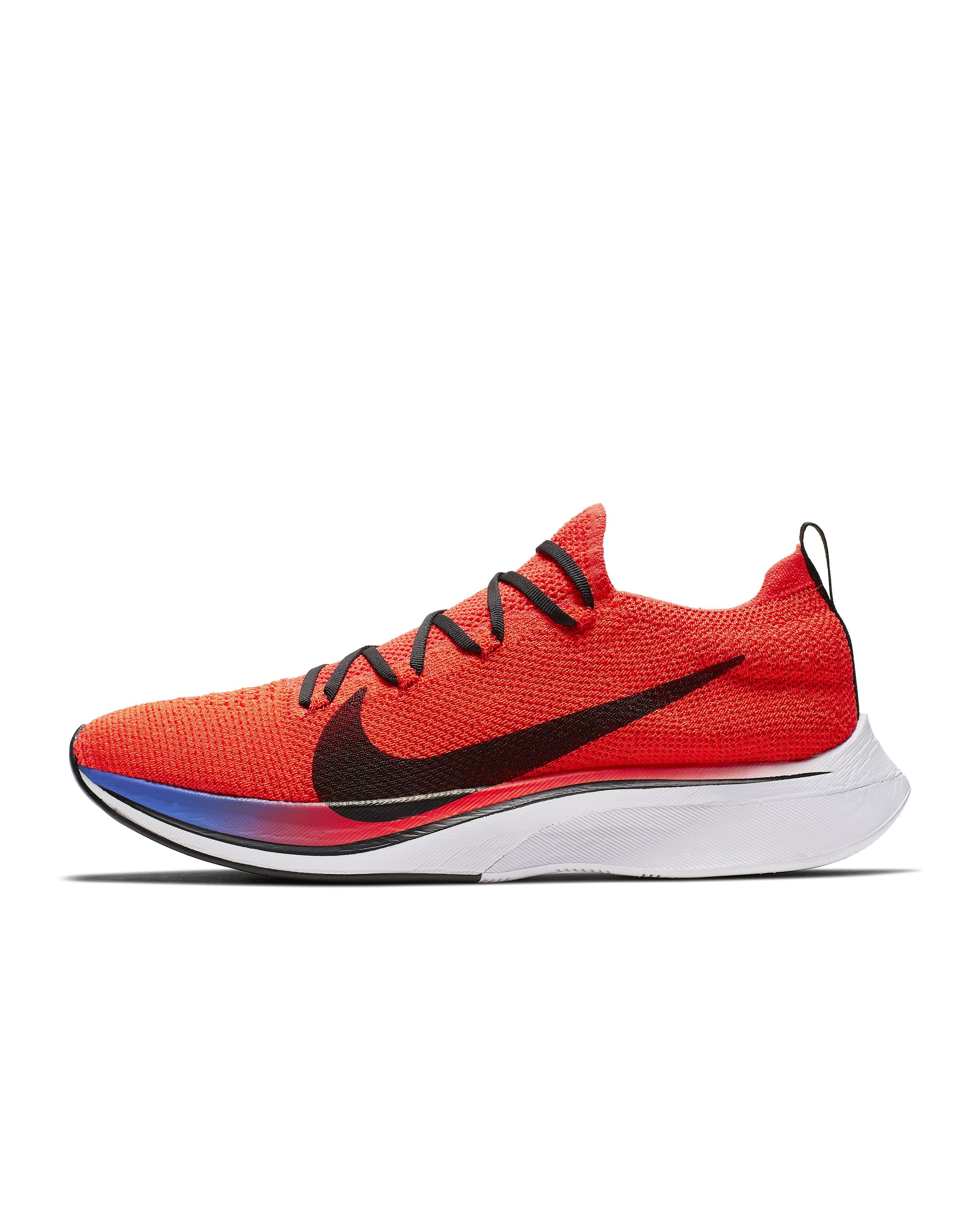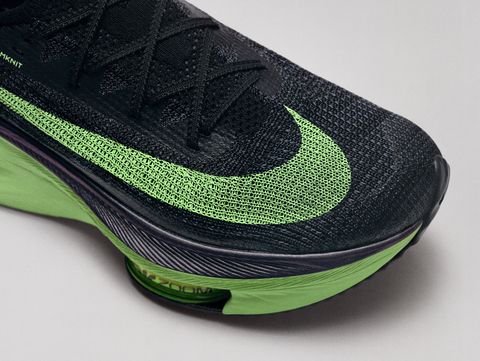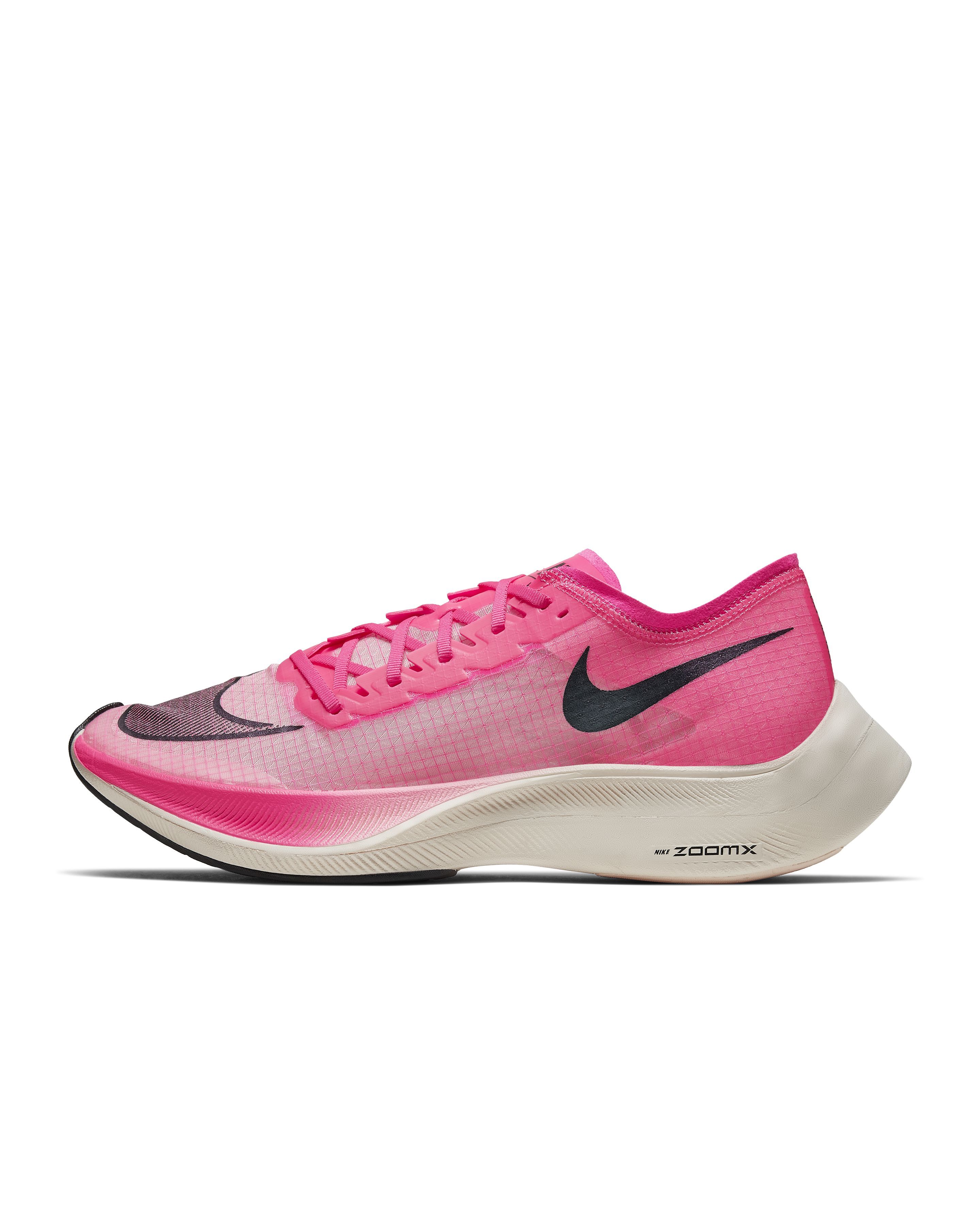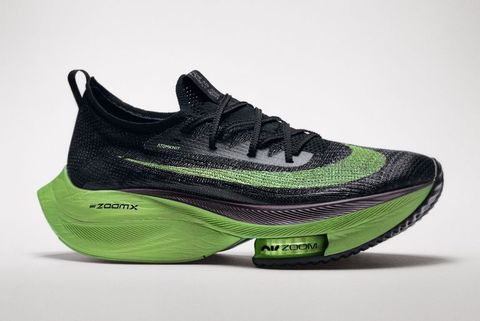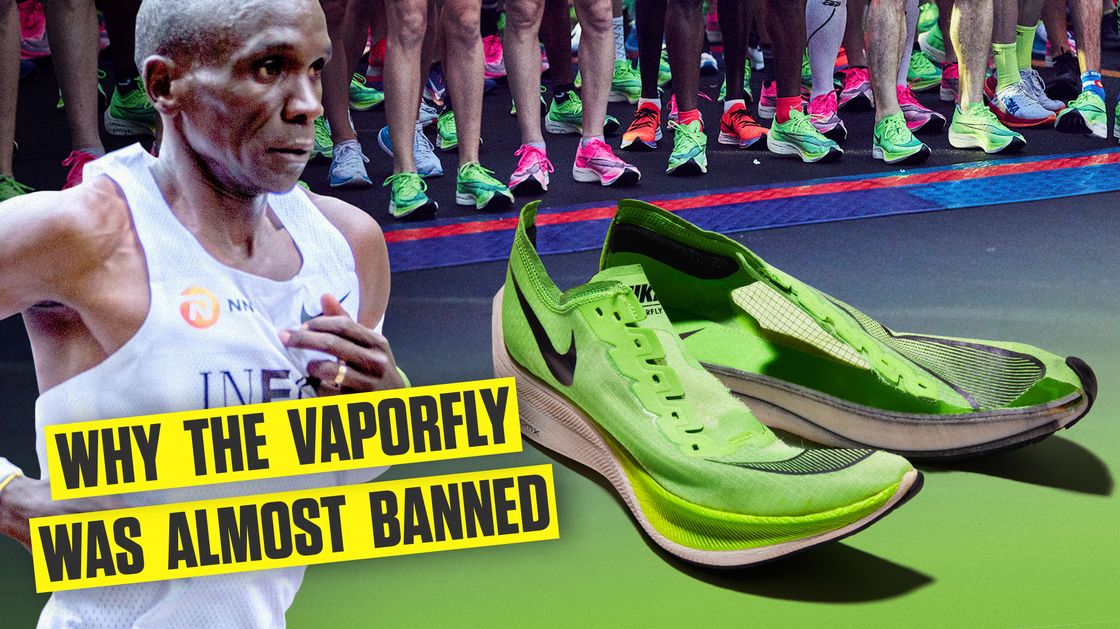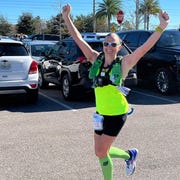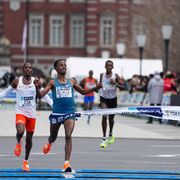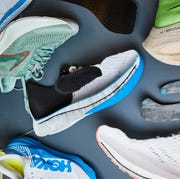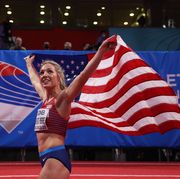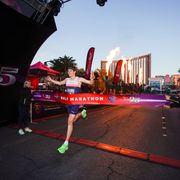- Nike has announced that the long-awaited Air Zoom Alphafly Next% shoes will be available this year.
- The controversial, carbon-fiber plated shoes were deemed legal by World Athletics, which made its ruling last Friday.
- The Alphafly was first teased when Eliud Kipchoge wore them to break the two-hour marathon barrier in October.
Less than a week after World Athletics imposed regulations on running footwear, Nike finally made the announcement of its competition-legal Air Zoom Alphafly Next% shoes.
Despite many critics arguing against the shoes for months, World Athletics deemed them legal for racing as they appear to fall within with a list of guidelines from a construction standpoint.
The Alphafly series has been mythical since Eliud Kipchoge wore them to break the two-hour marathon barrier in October. Those shoes were rumored to have as many as three carbon-fiber plates in them, which is illegal according to the new World Athletics guidelines.
Fans have long awaited to get their hands on them, however, and it appears that time will finally arrive in 2020. Though this new design will differ from the Air Zoom Vaporfly Next%, it will likely bring another generation of controversy and records with it.
New construction in running shoes—including implementing carbon-fiber plates and advanced foam technology—have been controversial since they debuted on runners’ feet in 2016. Over the past few years, versions of the Nike’s Vaporfly series have evolved to make runners even faster and help them set world records, like when Brigid Kosgei broke the women’s world record at October’s Chicago Marathon.
What We Know About the Alphafly Next%
The headliner for this announcement is the Nike Air Zoom Alphafly Next%. The long-distance racing shoe contains a single carbon-fiber plate, ZoomX cushioning, and Zoom Air Pods. These are all updates from its predecessor, the Nike ZoomX Vaporfly Next%. The shoe will also contain a new knit upper Nike calls Atomknit.
Runner’s World has learned that the Alphafly has been measured by World Athletics—a men’s size 8.5 is 39.5 millimeters (mm) thick—so they would be competition legal based on the new guidelines that impose an immediate ban on any shoe with a sole thicker than 40 mm or shoes that contain more than one plate.
“The groundbreaking research that led to the original Vaporfly unlocked an entirely new way of thinking about marathon shoes,” said Carrie Dimoff, an elite marathoner and member of Nike’s Advanced Innovation Team, in a press release. “Once we understood the plate and foam as a system, we started thinking about ways to make the system even more effective. That’s when we struck upon the idea of adding Nike Air to store and return even more of a runner’s energy and provide even more cushioning.”
The Alphafly won’t be alone as Nike announced three other shoes in the Next% line: the Air Zoom Tempo Next% and Air Zoom Tempo Next% FlyEase—both more high-mileage trainers than racing shoes—and a pair of track spikes, the Air Zoom Victory, which are meant for distances between 800 meters and 10,000 meters.
Nike’s sprint spike, the Viperfly, is currently banned because of the plate construction—Custom Fiber Placement; the plate is embroidered into the shoe—makes it against the rules. But Nike is also working to make that shoe legal.
What We Don’t Know
The release date and pricing for these shoes are a mystery at the moment. All four Next% shoes are rumored to be released sometime this year, likely before the four months required for them to be used in this year’s Tokyo Olympics. (Pro athletes will not be able to compete in prototype shoes after April 30.)
Nike told Runner’s World that a limited number will be available to Nike members on the day of the Olympic Marathon Trials on February 29.
The shoes will likely have a price tag similar to other shoes in the Vaporfly series, which have retailed at $250.
Runner’s World is expected to get pairs in the coming weeks, and we will begin our rigorous testing on them.
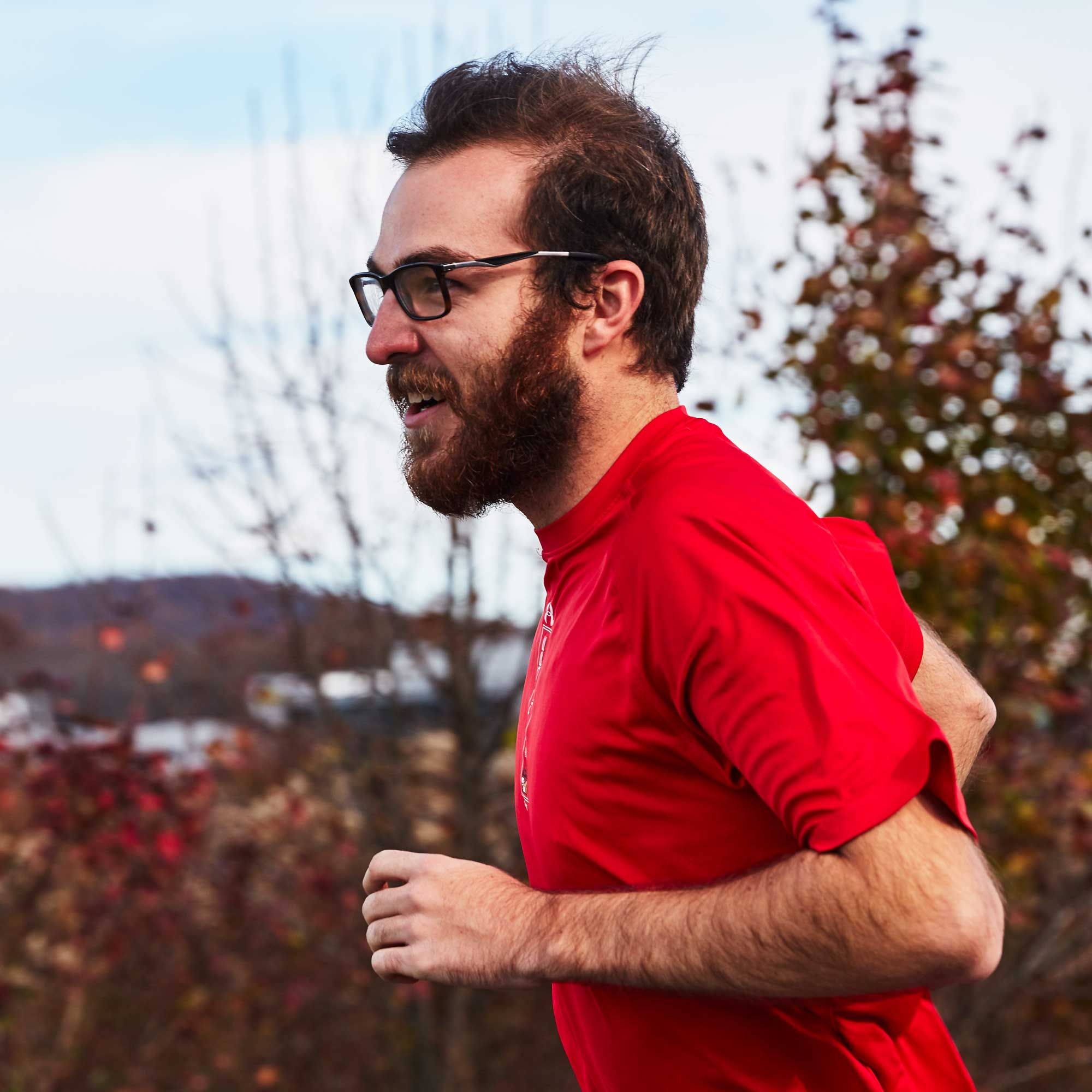
Drew covers a variety of subjects for Runner’s World and Bicycling, and he specializes in writing and editing human interest pieces while also covering health, wellness, gear, and fitness for the brand. His work has previously been published in Men’s Health.
